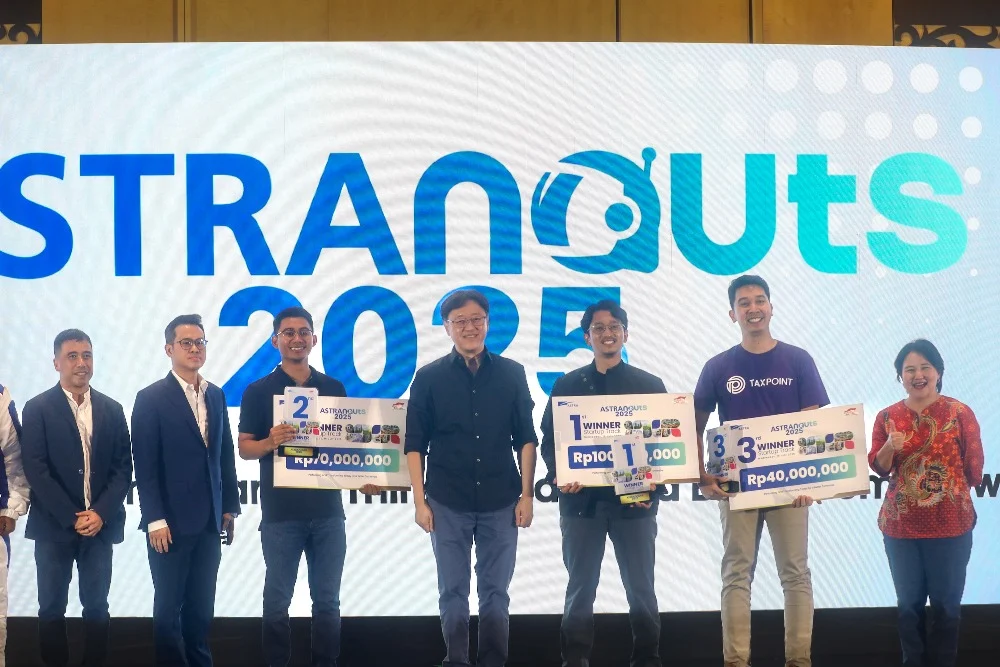Astranauts 2025 is more than just another innovation event. As a national Astranauts 2025 digital competition, it brought together 2,100 participants, from startups and students, uniting them around ideas, technology, and digital talent. Organized by Astra, the program aims to enhance Indonesia’s digital competitiveness. This year, Astra emphasized that the competition fosters collaboration across private, public, and community sectors. In this comprehensive article, we explore how the Astranauts 2025 digital competition unfolded, its key achievements, winners, and its broader role in strengthening Indonesia’s digital economy.
Astranauts 2025 Unites Diverse Participants
From its launch in 2022, Astranauts has grown steadily. What began as a modest platform has now become a flagship Astranauts 2025 digital competition. This year drew 2,186 registrants, with 2,100 participants after verification. That’s a remarkable rise from 930 participants in the first edition.
This surge reflects growing interest and belief in a national digital arena. By including both startup and student tracks, Astranauts leverages diverse ideas, from drone-based mapping to IoT bioscience, enhancing cross-sector innovation and strengthening Indonesia’s digital competitiveness landscape.
Startup Track: Showcasing Market-Ready Innovation
In the startup track of the Astranauts 2025 digital competition, the top three teams tackled real-world challenges:
- BETA-UAS (1st place) developed an unmanned aerial system for mapping and monitoring operations.
- Molca Teknologi (2nd place) integrated digital twin, AI, and XR for industrial transformation.
- Tax Point (3rd place) focused on automated RegTech for streamlined tax compliance.
These winning solutions demonstrate how the Astranauts 2025 digital competition supports both innovation and practical application, pushing Indonesia toward a robust digital economy.
Student Track: Nurturing Emerging Talent
The student track further highlighted innovation and creativity:
- EV‑OS DOR / BIOSTIMBOT won 1st place with an IoT-enabled smart grass-care system using natural bioscience.
- SUMMON / SANF Credit Agent (2nd place) used OCR and NLP to automate credit risk analysis for multifinance.
- Athena Team / SANF SCOPE (3rd place) leveraged intelligent document scoring and data evaluation.
These student-led innovations highlight the depth and potential of academic talent within the broader Astranauts 2025 digital competition.
Strategic Themes and Cross-Sector Collaboration
Astranauts 2025 covered eight strategic sectors: Automotive, Financial Services, Heavy Equipment & Mining, Agribusiness, Infrastructure & Logistics, Information Technology, Property, and Healthcare.
The program also featured a “Business Challenge” focusing on real-world case studies from Astra Group. This format encouraged solutions grounded in collaboration and sector-specific needs. Astra’s VP Director Rudy emphasized the need for cross-sector partnerships, private to public, to create lasting impact.
Conferences, Mentoring, and Judging
Astranauts 2025 wasn’t just about competition, it also fostered learning and connectivity. The conference segment featured public discussions with industry experts and mentors, including leaders from Astra and beyond .
A distinguished panel of judges from Astra and affiliates (Accenture, EY, Avanade, SANF, Lintas Marga, Hexagon) reviewed the final 20 pitches. This blend of expertise ensured that winners were not only innovative but viable in real business contexts.
Awards and Further Opportunities
Winners received significant cash prizes and access to Astra’s collaborative ecosystem. They also gain a place in the Astra Career Community, opening recruitment opportunities across Astra’s network.
Such recognition and support align with the goal of boosting Indonesia’s digital competitiveness, giving innovators direct pathways to market and mentorship networks.
Broader Economic and Startup Climate
Indonesia’s digital economy saw a Gross Merchandise Value of USD 90 billion in 2024, a 13% increase from the previous year. Meanwhile, startup funding fell dramatically from USD 2.8 billion in 2023 to USD 1.1 billion in 2024.
Program leaders view this downturn positively: smaller startups with strong fundamentals are more sustainable. The Astranauts 2025 digital competition is part of that maturation—prioritizing quality and impact over scale.
Impact on Digital Competitiveness
The Astranauts 2025 digital competition plays a dual role: inspiring innovation and helping build a strong digital ecosystem. By bridging ideas, technology, and talent, the program helps participants create practical, competitive, and high-impact solutions.
With government, private, and academic involvement, the program strengthens Indonesia’s digital competitiveness—positioning the country for resilient, innovative growth.
What Comes Next: From Competition to Growth
After Demo Day, Astranauts continues with its Conference 2025. It will host deeper dialogues with tech leaders, policymakers, and investors to scale proof-of-concepts toward commercialization.
Questions to watch: Will startups like BETA‑UAS and Molca secure pilots or funding? Will student innovations find adoption within Astra’s ecosystem? And can this model scale to 5,000+ participants in 2026? The program’s future lies in translating ideas into sustainable economic impact.
Conclusion
Astranauts 2025 is a flagship Astranauts 2025 digital competition driving Indonesia’s digital competitiveness forward. With 2,100 participants, six standout winners, and cross-sector engagement, it proves that quality innovation can thrive even amid tighter funding. By nurturing collaboration, talent, and practical solutions, Astra and national partners are helping build a digital ecosystem that is poised for long-term growth.
Read More






 Tuesday, 27-01-26
Tuesday, 27-01-26







